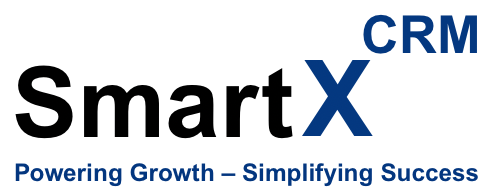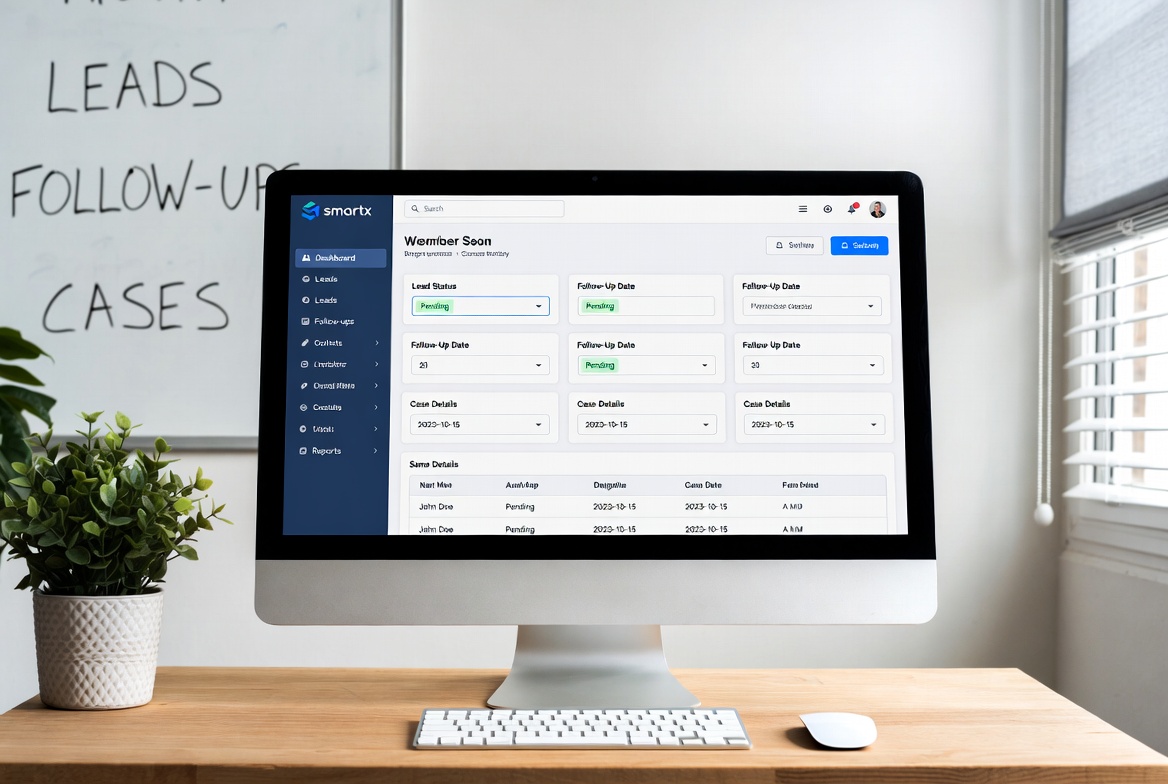Running a small business means wearing multiple hats – you’re the salesperson, customer service representative, marketing manager, and sometimes even the accountant. With so many responsibilities, keeping track of customer relationships can become overwhelming. This is where CRM software for small businesses becomes a game-changer.
If you’re a non-tech founder wondering “what is CRM software for small businesses,” you’ve come to the right place. This CRM explained for beginners guide will break down everything you need to know about Customer Relationship Management software in simple, easy-to-understand terms.
What is CRM Software? CRM Explained for Beginners
CRM stands for Customer Relationship Management. Think of CRM software as your digital assistant that never forgets a customer’s name, their last purchase, or when you promised to follow up with them. It’s a technology solution that helps businesses manage all their customer interactions, sales processes, and relationships in one centralized location.
Imagine having a super-organized filing cabinet where every customer’s information, conversation history, and business details are perfectly organized and easily accessible. That’s essentially what CRM software does, but digitally and much more efficiently.
For small business owners, CRM software for small businesses serves as the foundation for building stronger customer relationships, increasing sales, and growing your business systematically rather than chaotically.
Why Small Businesses Need CRM Software
The Challenge of Growing Customer Relationships
As your small business grows, managing customer relationships manually becomes increasingly difficult. Spreadsheets become cluttered, sticky notes get lost, and important customer details slip through the cracks. This is where many small businesses hit a growth ceiling – not because they lack good products or services, but because they can’t effectively manage their expanding customer base.
What is CRM software for small businesses solving exactly? Here are the key challenges it addresses:
Customer Information Scattered Everywhere: Without a centralized system, customer information ends up in emails, phone notes, business cards, and various team members’ heads. This makes it nearly impossible to provide consistent, personalized service.
Missed Follow-up Opportunities: How many potential sales have you lost simply because you forgot to follow up? Without systematic tracking, promising leads can disappear into the void.
Inconsistent Customer Experience: When different team members interact with the same customer without sharing information, it creates a disjointed experience that can damage your business reputation.
Difficulty Scaling Personal Relationships: The personal touch that works when you have 50 customers becomes impossible to maintain manually when you have 500 or 5,000 customers.
The SmartX Solution for Small Business Growth
At SmartX, we understand these challenges because we’ve worked with thousands of small businesses. Our Mizo CRM platform is designed specifically to help small businesses overcome these obstacles and scale their customer relationships effectively.
Core Features of CRM Software for Small Businesses
Understanding what is CRM software for small businesses means knowing its essential features. Let’s break down the key components that make CRM software invaluable for small business owners:
Contact Management: Your Customer Database on Steroids
The foundation of any CRM system is robust contact management. This goes far beyond storing names and phone numbers. Modern CRM software for small businesses includes:
Comprehensive Customer Profiles: Every contact becomes a detailed profile containing personal information, interaction history, preferences, purchase behavior, and notes from your team. This creates a 360-degree view of each customer relationship.
Automatic Data Capture: Instead of manually entering every detail, modern CRM systems can automatically capture information from emails, social media interactions, website visits, and other touchpoints.
Relationship Mapping: Understanding how different contacts within an organization relate to each other helps you navigate complex B2B relationships more effectively.
Communication History: Every email, phone call, meeting, and interaction is logged and easily accessible, ensuring nothing falls through the cracks.
Lead Management and Sales Pipeline
For small businesses, converting leads into customers efficiently is crucial for survival and growth. CRM software for small businesses provides powerful lead management capabilities:
Lead Tracking: From the moment a potential customer shows interest, CRM software tracks their journey through your sales process. You’ll know exactly where each lead stands and what actions need to be taken next.
Pipeline Visualization: Visual sales pipelines help you understand your sales process at a glance. You can see how many leads are in each stage, identify bottlenecks, and forecast future revenue.
Automated Lead Scoring: Advanced CRM systems can automatically score leads based on their behavior, helping you prioritize your efforts on the most promising opportunities.
Follow-up Automation: Never miss a follow-up again. CRM software can automatically schedule and remind you of important follow-up tasks, ensuring consistent communication with prospects.
Task and Activity Management
Running a small business means juggling countless tasks and deadlines. CRM software helps organize and prioritize your activities:
Task Automation: Routine tasks like sending welcome emails, scheduling follow-ups, or updating contact information can be automated, freeing up your time for high-value activities.
Calendar Integration: Your CRM system can integrate with your existing calendar, ensuring all customer-related appointments and deadlines are synchronized across all your devices.
Team Collaboration: When you have employees or contractors, CRM software ensures everyone is on the same page about customer interactions and responsibilities.
Performance Tracking: Monitor your team’s activities and performance, identifying areas for improvement and celebrating successes.
Reporting and Analytics
Data-driven decision making is crucial for small business success. CRM software provides valuable insights:
Sales Performance Reports: Track your sales metrics, conversion rates, and revenue trends to understand what’s working and what needs improvement.
Customer Behavior Analytics: Understand how customers interact with your business, what they purchase, and when they’re most likely to buy.
ROI Tracking: Measure the return on investment for your marketing campaigns and sales activities.
Custom Dashboards: Create personalized dashboards that show the metrics most important to your business at a glance.
Types of CRM Software for Small Businesses
Not all CRM systems are created equal. Understanding the different types helps you choose the right solution for your specific needs:
Operational CRM
Operational CRM focuses on automating customer-facing processes. This type of CRM software for small businesses is ideal if you want to:
- Streamline your sales process
- Improve customer service efficiency
- Automate marketing campaigns
- Manage customer interactions across multiple channels
Operational CRM is perfect for small businesses that want to improve their day-to-day customer management processes.
Analytical CRM
Analytical CRM focuses on analyzing customer data to gain insights and improve decision-making. This type helps you:
- Understand customer behavior patterns
- Identify your most valuable customers
- Predict future sales trends
- Optimize marketing campaigns based on data
For small businesses that want to become more data-driven in their approach, analytical CRM provides powerful insights.
Collaborative CRM
Collaborative CRM focuses on improving communication and collaboration between different departments and with customers. This type helps:
- Improve internal communication about customers
- Provide consistent customer experience across all touchpoints
- Enable better collaboration with partners and suppliers
- Enhance customer self-service capabilities
Small businesses with multiple team members or departments benefit most from collaborative CRM features.
Strategic CRM
Strategic CRM takes a long-term view of customer relationships, focusing on customer retention and lifetime value. This approach helps:
- Develop long-term customer relationship strategies
- Focus on customer retention and loyalty
- Maximize customer lifetime value
- Create personalized customer experiences
For small businesses looking to build lasting customer relationships rather than just making one-time sales, strategic CRM is essential.
Key Benefits of CRM Software for Small Businesses
Now that we understand what is CRM software for small businesses, let’s explore the tangible benefits it provides:
Improved Customer Relationships
The primary benefit of CRM software is right in its name – better customer relationship management. By having complete visibility into customer interactions and preferences, you can:
Provide Personalized Service: When you know a customer’s purchase history, preferences, and past interactions, you can tailor your communication and recommendations accordingly.
Respond Faster: With all customer information centralized, you can quickly respond to inquiries and resolve issues without asking customers to repeat information.
Build Trust: Consistent, knowledgeable interactions build customer trust and confidence in your business.
Anticipate Needs: By analyzing customer behavior patterns, you can proactively address needs and offer relevant solutions.
Increased Sales and Revenue
CRM software for small businesses directly impacts your bottom line through various mechanisms:
Better Lead Conversion: With systematic lead nurturing and follow-up processes, more prospects become paying customers.
Shorter Sales Cycles: Automated processes and better organization reduce the time it takes to close deals.
Increased Deal Size: Understanding customer needs and history allows you to make more relevant and valuable proposals.
Repeat Business: Better customer relationships lead to more repeat purchases and referrals.
Cross-selling and Upselling: CRM systems help identify opportunities to offer additional products or services to existing customers.
Enhanced Productivity and Efficiency
Time is your most valuable resource as a small business owner. CRM software helps you use it more effectively:
Automated Routine Tasks: Reduce time spent on data entry, follow-up reminders, and other repetitive activities.
Centralized Information: No more searching through emails, notes, and files to find customer information.
Streamlined Processes: Standardized workflows ensure consistent and efficient handling of customer interactions.
Mobile Access: Modern CRM systems work on smartphones and tablets, allowing you to stay productive while on the go.
Better Team Collaboration
As your small business grows and you add team members, CRM software becomes essential for coordination:
Shared Customer Database: Everyone has access to the same up-to-date customer information.
Clear Accountability: Track who is responsible for what, ensuring nothing falls through the cracks.
Knowledge Sharing: New team members can quickly get up to speed on customer relationships and processes.
Communication History: Complete interaction history prevents miscommunication and duplicate efforts.
Data-Driven Decision Making
CRM explained for beginners wouldn’t be complete without discussing the analytical benefits:
Sales Forecasting: Use historical data and pipeline information to predict future sales and plan accordingly.
Customer Insights: Understand which customers are most valuable and why.
Marketing Effectiveness: Track which marketing campaigns generate the best results.
Business Trends: Identify patterns and trends that can inform strategic decisions.
Scalability for Growth
Perhaps most importantly, CRM software for small businesses grows with you:
Handle More Customers: Manage thousands of customer relationships as efficiently as you managed dozens.
Add Team Members: New employees can easily access and contribute to the customer database.
Expand Product Lines: Track customer preferences across multiple products and services.
Enter New Markets: Organize and manage customers across different geographical areas or market segments.
How to Choose the Right CRM Software for Your Small Business
Selecting the right CRM software for small businesses requires careful consideration of your specific needs, budget, and growth plans. Here’s a comprehensive guide to making the right choice:
Assess Your Business Needs
Before evaluating CRM options, clearly define what you want to achieve:
Current Challenges: Identify the specific problems you want CRM software to solve. Are you losing track of leads? Struggling with follow-ups? Need better customer service?
Business Goals: Define your short-term and long-term objectives. Are you focused on increasing sales, improving customer retention, or scaling your operations?
Process Requirements: Consider your current sales and customer service processes. Do you need to automate existing workflows or create new ones?
Team Size and Structure: Consider how many people will use the CRM system and what their roles are.
Key Features to Look For
Not all CRM software for small businesses includes the same features. Prioritize based on your needs:
Essential Features for Most Small Businesses:
- Contact management and customer profiles
- Lead tracking and pipeline management
- Task and activity management
- Basic reporting and analytics
- Email integration
- Mobile access
Advanced Features for Growing Businesses:
- Marketing automation
- Advanced analytics and reporting
- Customizable dashboards
- Third-party integrations
- Workflow automation
- Customer service ticketing
Industry-Specific Features: Depending on your industry, you might need specialized features like appointment scheduling for service businesses or inventory integration for retailers.
Budget Considerations
CRM software for small businesses comes in a wide range of price points. Consider both upfront and ongoing costs:
Subscription Costs: Most CRM systems use monthly or annual subscription pricing. Factor this into your ongoing operating expenses.
Setup and Implementation: Some systems require professional setup or training, which adds to the initial cost.
User Licenses: Consider how many team members will need access and how licensing costs scale.
Integration Costs: If you need to connect your CRM to other business systems, there might be additional costs for integrations or custom development.
Training and Support: Factor in the time and money needed to train your team and ongoing support costs.
Ease of Use and Learning Curve
For small business owners who aren’t tech-savvy, user-friendliness is crucial:
Intuitive Interface: The system should be easy to navigate without extensive training.
Quick Setup: Look for solutions that can be implemented quickly without complex configuration.
Good Documentation: Comprehensive help resources and tutorials are essential for self-service learning.
Customer Support: Responsive customer support can make a huge difference, especially during the initial implementation phase.
Integration Capabilities
Your CRM system shouldn’t exist in isolation. Consider how it integrates with your existing tools:
Email Systems: Integration with Gmail, Outlook, or other email platforms is almost essential.
Accounting Software: Connection to QuickBooks, Xero, or other accounting systems can streamline financial processes.
Marketing Tools: Integration with email marketing platforms, social media management tools, and website analytics.
E-commerce Platforms: If you sell online, integration with your e-commerce platform can provide valuable customer insights.
Scalability and Flexibility
Choose a system that can grow with your business:
User Scalability: Can you easily add more users as your team grows?
Feature Scalability: Are advanced features available when you’re ready for them?
Customization Options: Can you modify the system to fit your specific business processes?
Data Limits: Are there restrictions on the amount of data you can store?
Security and Compliance
Protecting customer data is both a legal requirement and a business necessity:
Data Security: Look for features like encryption, secure access controls, and regular security updates.
Backup and Recovery: Ensure your customer data is regularly backed up and can be recovered if needed.
Compliance Requirements: Depending on your industry and location, you may need to comply with regulations like GDPR, HIPAA, or others.
Privacy Controls: Customers are increasingly concerned about privacy, so choose systems with strong privacy protections.
SmartX CRM: The Perfect Solution for Small Businesses
At SmartX, we’ve designed our Mizo CRM platform specifically for small businesses who need powerful functionality without overwhelming complexity. Here’s why SmartX CRM software for small businesses stands out:
Designed for Non-Tech Founders
Our platform is built with non-technical business owners in mind. You don’t need to be a software expert to set up and use Mizo CRM effectively. The intuitive interface and guided setup process get you up and running quickly.
All-in-One Solution
Instead of juggling multiple tools, Mizo CRM provides everything you need in one platform:
- Complete contact management
- Advanced lead generation and tracking
- Sales pipeline management
- Marketing automation
- Customer service tools
- Detailed analytics and reporting
Industry-Specific Solutions
We understand that different industries have different needs. That’s why we offer specialized CRM solutions for various sectors:
- Real estate CRM for property professionals
- Healthcare CRM for medical practices
- Insurance CRM for agents and brokers
- Legal CRM for law firms
Powerful Lead Generation
Our lead generation tools help you attract and convert more prospects into customers. From automated follow-up sequences to intelligent lead scoring, we help you maximize every opportunity.
Affordable and Scalable
We believe CRM software for small businesses should be accessible to companies of all sizes. Our pricing is designed to grow with your business, so you only pay for what you need when you need it.
Implementation Best Practices for Small Business CRM
Successfully implementing CRM software for small businesses requires more than just signing up for a service. Here are best practices to ensure your CRM implementation delivers maximum value:
Start with Clean Data
Before importing any data into your new CRM system:
Audit Existing Data: Review your current customer database, removing duplicates and updating outdated information.
Standardize Formats: Ensure consistent formatting for phone numbers, addresses, and other data fields.
Define Data Standards: Establish guidelines for how information should be entered going forward.
Prioritize Quality Over Quantity: It’s better to have a smaller database of accurate, complete customer records than a large database of poor-quality data.
Plan Your Workflow
Map Current Processes: Document how you currently handle leads, customers, and sales processes.
Identify Improvements: Look for opportunities to streamline and automate processes.
Design New Workflows: Create standardized processes that everyone on your team can follow.
Test and Refine: Start with simple workflows and gradually add complexity as your team becomes more comfortable with the system.
Train Your Team Properly
Provide Comprehensive Training: Ensure every team member understands how to use the CRM system effectively.
Create Documentation: Develop internal guides and procedures specific to your business processes.
Designate Champions: Identify team members who are enthusiastic about the new system and can help train others.
Ongoing Education: CRM systems evolve, so plan for ongoing training and skill development.
Monitor and Optimize
Track Key Metrics: Monitor important performance indicators to measure the impact of your CRM implementation.
Gather Feedback: Regularly ask your team about challenges and suggestions for improvement.
Make Adjustments: Be prepared to modify processes and configurations based on real-world usage.
Regular Reviews: Schedule periodic reviews to assess how well your CRM system is meeting your business objectives.
Common CRM Mistakes to Avoid
Learning what is CRM software for small businesses also means understanding common pitfalls:
Overcomplicating the System
Many small businesses try to implement too many features at once. Start simple and add complexity gradually as your team becomes comfortable with the system.
Neglecting Data Quality
Poor data quality undermines the effectiveness of any CRM system. Establish data quality standards from the beginning and maintain them consistently.
Lack of User Adoption
If your team doesn’t use the CRM system, it can’t provide value. Focus on training, support, and choosing a user-friendly system to encourage adoption.
Ignoring Mobile Needs
Your team needs access to customer information while on the go. Ensure your CRM system provides robust mobile functionality.
Failing to Integrate
CRM systems work best when integrated with other business tools. Plan for integrations with email, accounting, and other essential systems.
The Future of CRM for Small Businesses
Understanding CRM explained for beginners also means looking ahead to emerging trends:
Artificial Intelligence and Automation
AI-powered features are becoming more accessible to small businesses:
- Automated lead scoring and qualification
- Predictive analytics for sales forecasting
- Chatbots for customer service
- Intelligent task automation
Enhanced Mobile Experience
Mobile CRM functionality continues to improve:
- Offline access to customer data
- Voice-activated data entry
- GPS-based customer check-ins
- Mobile payment processing
Integration Ecosystems
CRM systems are becoming central hubs that connect all your business tools:
- Seamless data sharing between applications
- Unified customer views across all touchpoints
- Automated workflows spanning multiple systems
- Real-time synchronization
Advanced Analytics
Small businesses are gaining access to enterprise-level analytics:
- Customer lifetime value calculations
- Behavioral analytics and segmentation
- ROI tracking for marketing campaigns
- Predictive modeling for customer behavior
Getting Started with CRM Software
Now that you understand what is CRM software for small businesses, here’s how to get started:
Step 1: Define Your Goals
Clearly articulate what you want to achieve with CRM software:
- Increase sales by X%
- Improve customer retention
- Streamline customer service
- Better organize customer information
Step 2: Evaluate Your Options
Research different CRM software for small businesses options:
- Read reviews and case studies
- Take advantage of free trials
- Ask for recommendations from other business owners
- Consider industry-specific solutions
Step 3: Start Small
Begin with basic features and gradually expand:
- Focus on contact management and sales pipeline initially
- Add marketing automation and advanced analytics later
- Train your team on core features before introducing advanced functionality
Step 4: Import and Clean Your Data
Prepare your existing customer data for import:
- Remove duplicates and outdated information
- Standardize data formats
- Verify contact information accuracy
- Organize data into logical categories
Step 5: Train Your Team
Invest in proper training for maximum adoption:
- Provide hands-on training sessions
- Create documentation specific to your business processes
- Establish regular check-ins to address questions and challenges
- Celebrate early wins to build enthusiasm
Step 6: Monitor and Optimize
Continuously improve your CRM usage:
- Track key performance metrics
- Gather feedback from your team
- Make adjustments based on real-world usage
- Stay updated on new features and capabilities
Why Choose SmartX for Your Small Business CRM Needs
SmartX CRM software for small businesses offers the perfect combination of power and simplicity. Our Mizo CRM platform is designed specifically for small business owners who need robust functionality without overwhelming complexity.
Key Advantages of SmartX CRM:
Easy Implementation: Get up and running quickly with our guided setup process and intuitive interface.
Comprehensive Features: Everything you need in one platform, from lead management to customer service to marketing automation.
Industry Expertise: We offer specialized solutions for various industries, ensuring your CRM fits your specific business needs.
Affordable Pricing: Our pricing scales with your business, so you only pay for what you need.
Excellent Support: Our team is committed to your success, providing training, support, and ongoing guidance.
Integration Capabilities: Connect with your existing tools and systems for a seamless workflow.
Whether you’re just starting to research what is CRM software for small businesses or you’re ready to implement a solution, SmartX is here to help you succeed.
Conclusion: Transform Your Small Business with CRM Software
Understanding what is CRM software for small businesses is just the beginning. The real value comes from implementing the right solution and using it effectively to build stronger customer relationships, increase sales, and grow your business systematically.
CRM software for small businesses is no longer a luxury – it’s a necessity for companies that want to compete effectively and scale efficiently. By centralizing customer information, automating routine tasks, and providing valuable insights, CRM software enables small businesses to provide the kind of personalized, professional service that builds lasting customer relationships.
Whether you choose SmartX CRM or another solution, the important thing is to get started. The sooner you implement CRM software for small businesses, the sooner you’ll start seeing the benefits: better customer relationships, increased sales, improved efficiency, and sustainable growth.
Remember, successful CRM implementation is about more than just technology – it’s about changing how your business approaches customer relationships. With the right system, proper training, and commitment to best practices, CRM software can transform your small business and set you up for long-term success.
Ready to see how SmartX CRM software for small businesses can transform your customer relationships? Contact us today to schedule a demo and discover why thousands of small businesses trust SmartX to power their growth.
Start your CRM journey today and watch your small business relationships – and revenue – grow like never before.





Leave a comment: